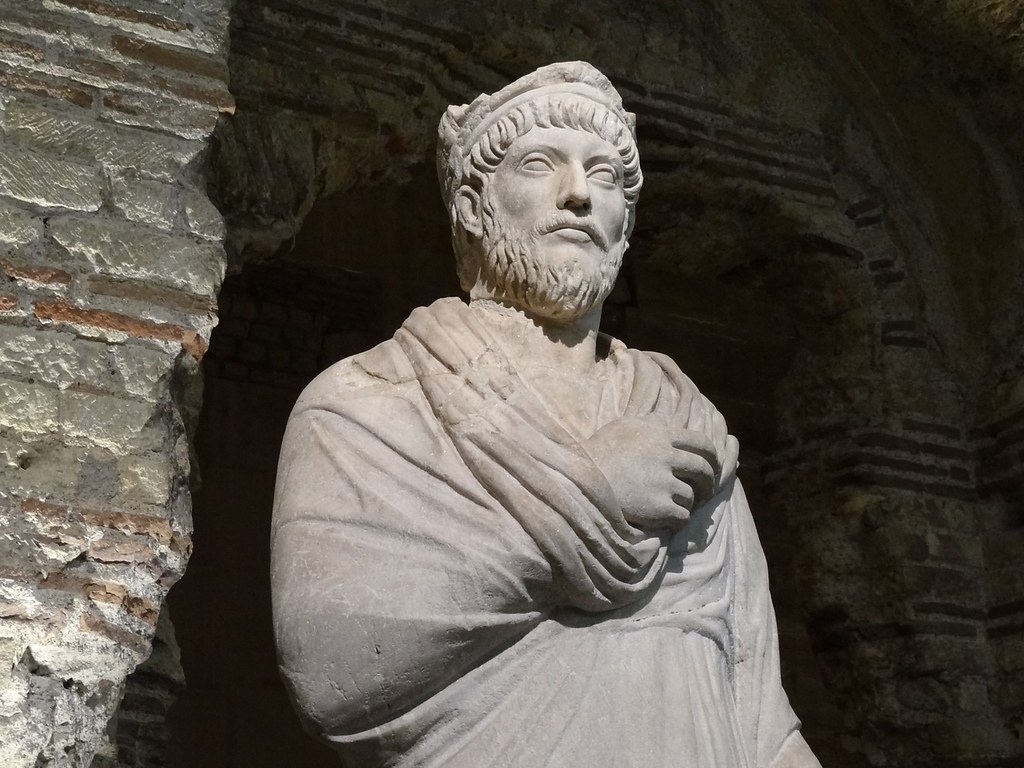The Emperor Concedes to Christ
Khen Lim
Julian the Apostate (Image source: flickr.com)
Emperor Flavius Claudius Julianus (Julian in
short) ruled the Roman Empire for not much more than two short years. Nephew of
Constantine the Great, Julian died on June 27* 363AD while at war with the
Persians in Ctesiphon, Mesopotamia (now Baghdad). It was reported that as he
laid dying in agony with a spear having pulverised his liver, he uttered the
words, “You have conquered, O Galilean” in reference to Christ Jesus. The next
night, he died, having ruled for only twenty short months.
(* some maintain that it was arguably June 26)
It was recorded that he was mortally wounded by
a spear thrown ‘no one knew whence,’ and rumours were that it was a Christian
who did the deed. Although it was likely a spurious claim, Christians had more
than enough justification to do it in light of the animosity that Julian had
against them in the Roman Empire. Astonishingly, Julian’s uncle, Constantine,
was a key influence in the expansion of the Christian faith fifty years earlier
when he secured a momentous victory under the sigh of the Chi-Rho, the first
two Greek letters for Khristos
(Christ) used as a Christian symbol.
Although Julian was brought up and baptised as a
Christian and was even ordained a lector in church, he was under the tutelage
influence of Maximus of Ephesus who paved the way for his conversion to the
pagan Neoplatonism. It was his rejection of Christ that earned him the
unenviable title of Julianus Apostata or Julian the Apostate.
Here was a man who had the world at his feet.
From young, he was well educated. Though initially brought up in obscurity
(parents were killed), he surrounded himself with outstanding teachers and soon
after studying in Pergamum at Ephesus and later Athens, became a man of refined
culture. Judging from his surviving works, his literary talent was undoubtedly prodigious
with a profound adoration for Hellenism.
Very likely, his Christian upbringing did not
survive once he became ruler supreme because it reminded him of the religion of
those who murdered his parents and many of his relatives, preferring the solace
of his philosophic speculations and Maximus’ spellbinding magic ministrations.
The irony though was that Julian owed his life to another Christian but that
seemed to be irrelevant.
When Julian ascended to power, he began putting
into plan the grand restoration of traditional pagan religions, asserting that
they be elevated to official status under an established hierarchy. To him, the
pagan religions – and not Christianity – were the true heritage of the empire. Old
temples were rebuilt, new ones started and soon, he devised a comprehensive
pagan priesthood system.
Despite the vociferous objections from Christian
quarters, Julian ignored their disapproval and instead, responded by expelling
Christian teachers who opposed pagan authorships and practices. To further
antagonise the Christians, he collaborated with the Jews and ordered the Jewish
temple to be rebuilt in Jerusalem but as if God had spoken, an earthquake
promptly ruined that project.
No matter what he thought of Christianity, he
still borrowed ideas from the faith he despised such as how he urged pagans to be
more caring and compassionate towards the poor and the needy regardless of
their religious leanings. By doing so, he inadvertently handed the Christians an
undeniably strong moral advantage over any of the pagan counterparts that
Julian sided with.
In the end, Julian’s dying words affirmed the
one thing that Christians knew – that God had judged him and Christ had
defeated him. And with his untimely death at 31 years of age, the pagans had
lost the one patron who handed them on the silver platter, a seemingly endless
perks and privileges.
No comments:
Post a Comment